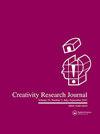无意识工作不起作用
IF 2.5
3区 心理学
Q2 PSYCHOLOGY, EDUCATIONAL
引用次数: 0
摘要
为什么对未解决问题的创造性想法和解决方案受益于休息?无意识工作作为一种解释的想法是如此吸引人,以至于即使在阅读了这篇明确指出无意识工作是基于没有明确理论和明确经验证据的幻想的论文之后,一些读者会声称我们说的是相反的。在这里,我们解释了为什么无意识工作的想象模因如此难以从科学文献中根除,包括没有明确可测试的无意识工作理论这一事实。因为缺乏一个真正可测试的理论是使这个模因如此不可靠的原因之一,我们提出了一个可测试的无意识工作理论,自主无意识思维操作(AUTO)理论,该理论指出,随着时间的推移,自主无意识操作是无意识工作的一个基本特征。我们描述了这种理论的一些要求,并提出了AUTO理论的实证检验。我们预测无意识操作的自主性将被经验证伪。不需要无意识工作的机制来解释所谓的“孵化”效应,因为有几个可测试的(和经过验证的)解释,作为从固定问题中休息的功能,如多次忘记有意识的工作,忘记固定的反应,思维走神,或设置转移。本文章由计算机程序翻译,如有差异,请以英文原文为准。
Unconscious Work Doesn’t Work
ABSTRACT Why do creative ideas and solutions to unresolved problems benefit from taking a break? The idea of unconscious work as an explanation is so appealing that even after reading this paper, which states clearly that unconscious work is a fantasy based on no clear theory and no clear empirical evidence, some readers will claim that we are saying the opposite. Here, we explain why the imaginary meme of unconscious work is so difficult to eradicate from the scientific literature, including the fact that there is no clearly testable theory of unconscious work. Because the lack of a truly testable theory is one of the things that makes this meme so slippery, we propose a testable theory of unconscious work, the Autonomous Unconscious Thought Operations (AUTO) theory, which states that autonomous unconscious operations continuing over time is an essential feature of unconscious work. We describe some requirements of such a theory, and we propose empirical tests of the AUTO theory. We predict that autonomy of unconscious operations will be empirically falsified. The mechanism of unconscious work is not needed to explain so-called “incubation” effects, because there are several testable (and tested) explanations of what happens as a function of breaks from fixated problems, such as multiple bouts of forgotten conscious work, forgetting fixating responses, mind wandering, or set-shifting.
求助全文
通过发布文献求助,成功后即可免费获取论文全文。
去求助
来源期刊

Creativity Research Journal
Multiple-
CiteScore
5.10
自引率
7.70%
发文量
52
期刊介绍:
Creativity Research Journal publishes high-quality, scholarly research capturing the full range of approaches to the study of creativity--behavioral, clinical, cognitive, crosscultural, developmental, educational, genetic, organizational, psychoanalytic, psychometrics, and social. Interdisciplinary research is also published, as is research within specific domains (e.g., art, science) and research on critical issues (e.g., aesthetics, genius, imagery, imagination, incubation, insight, intuition, metaphor, play, problem finding and solving). Integrative literature reviews and theoretical pieces that appreciate empirical work are extremely welcome, but purely speculative articles are not published. Readers are encouraged to send commentaries, comments, and evaluative book reviews.
 求助内容:
求助内容: 应助结果提醒方式:
应助结果提醒方式:


